Essex Police officers and staff are additionally guided by the Police Code of Ethics Supported by the Police, Fire and Crime Panel's Ethics and Integrity SubCommittee, the Commissioner monitors how well both services are delivering against these standards and, working with the Chief Constable and Chief Fire Officer, uses this to help drive improvements In addition, HMICFRS inspects allThe ten standards of professional behaviour originate from the Police (Conduct) Regulations 12 and from the Police Staff Council Joint Circular 54 In the Code the wording of the standards has been adapted so that it applies to everyone Where something applies solely to police officers, this is made clear 6 The combination of policing principles and standards of professional behaviourCode of ethics Law enforcement officials are expected to comply with a code of ethics outlining general guidelines to ethical behavior of police professionals To be effective, the code of ethics should become part of each officer's demeanor and officers should learn to live and think ethically in order to avoid conflicting behaviors
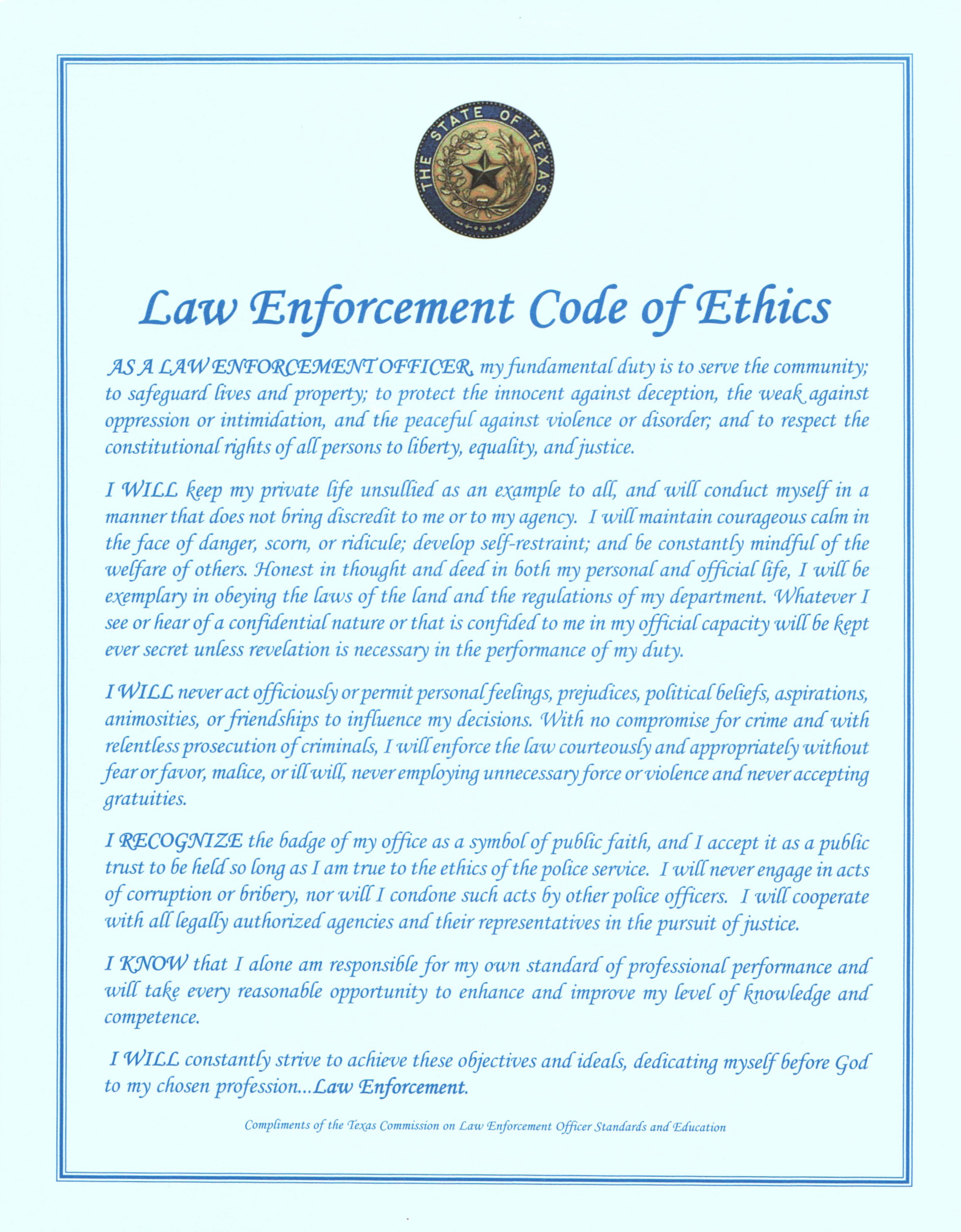
Retired Police Corporal Chris Grollnek And The Police Code Of Ethicsactive Shooter Expert Keynote Speaker Network News Guest Contributing Author
Code of ethics police scotland
Code of ethics police scotland- The Police Code of Ethics applies the 'Nolan' Principles, which originate from the 1995 report prepared by the Committee on Standards in Public Life, and holds at its core the following principles Accountability;The NDM puts the Code of Ethics at the heart of all police decision making This distinguishes the NDM from other decisionmaking models and recognises the need for all police decisions to be consistent with the principles and standards of behaviour set out in the Code Policing principles The policing principles originate from the Principles of Public Life developed by the Committee




Conduct Unbecoming A Call For A Model Code Of Ethics For Law Enforcement
The Code of Ethics for the police service in England and Wales has been in place for a number of years and continues to provide a framework that ensures policing isDorset Police is committed to ensuring that the Code of Ethics is not simply another piece of paper, poster or laminate The Code of Ethics is at the heart of every decision officers make, every day Evidence tells us that simply having a Code of Ethics is not enough to reduce unprofessional behaviour it needs to be talked about as an everyday business considerationThe Code of Ethics comprises 9 policing principles and 10 standards of professional behaviour The policing principles originate from the 'Principles of Public Life' published by the Committee on Standards in Public Life in 1995 and are direct reflection of public expectation
Our vision, values and ethics Our vision To be the best at understanding and responding to our communities Our values To be proud, professional and positive in everything we do Code of Ethics The Code of Ethics External Link is the written guide to the principles that every member of the policing profession of England and Wales isCode of Ethics The Code of Ethics applies to all officers and staff in England and Wales, in every force, in every role, at every level The Code lays out the principles and standards of behaviour that everyone who works in policing should aspire to It is intended to be used on a daytoday basis to guide behaviour and decisionmaking and has been written "by" policing "for" policingCode of Ethics 08 While police conduct, or misconduct, will be judged against the standards set out in the Code of Ethics 08, the Code is not merely a disciplinary tool It is a comprehensive human rights document which draws upon the European Convention on Human Rights and other relevant human rights instruments The Board believes that by carrying out their duties whilst
"practice requiring improvement" means underperformance or conduct not amounting to misconduct or gross misconduct, which falls short of the expectations of the public and the policeThis Code applies to the conduct of police officers in all ranks whilst on duty, or whilst off duty if the conduct is serious enough to indicate that an officer is not fit to be a police officerCode of Ethics The Code of Ethics is a first for everyone who works in policing in England and Wales It sets out the principles and standards of behaviour we expect to see from police professionals It applies to every individual who works in policing, whether a warranted officer, police staff, volunteer or someone contracted to work in a police




Removing The Blindfold Ethics In Criminal Justice
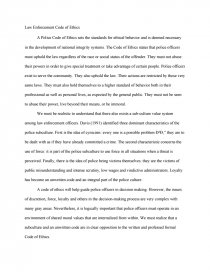



Law Enforcement Code Of Ethics Term Papers
In addition, the Police Code of Ethics incorporates the existing The Code of Ethics clearly defines the expectations of standards and behaviour for everyone in policing and brings policing into line with other trusted professions that have such codes, like thoseCode of ethics As part of its role as the professional body for policing in England and Wales, the College of Policing has issued the first ever Code of Ethics for police officers and police staff The Code is a framework that helps police officers, staff and volunteers make complex splitsecond judgements, often in highly challenging situations, consistently and ethically, every day The



Russian Police Code Of Ethics Russian Legal Information Agency Rapsi
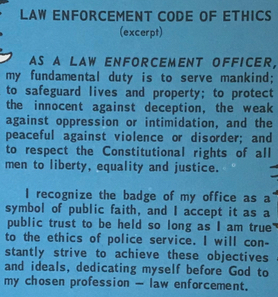



Detroit Under Fire Police Violence Crime Politics And The Struggle For Racial Justice In The Civil Rights Era Law Enforcement Code Of Ethics Excerpts Omeka Beta Service
Code of Ethics Lancashire Constabulary supports the Code of Ethics which are the Principles and Standards of Professional Behaviour for the Policing Profession of England and Wales Police Code of Ethics for members of the publicLaw Enforcement Code of Ethics The IACP adopted the Law Enforcement Code of Ethics at the 64th Annual IACP Conference and Exposition in October 1957 The Code of Ethics stands as a preface to the mission and commitment law enforcement agencies make to the public they serve Law Enforcement Code of EthicsThe Ethics, Integrity and Complaints Committee has been set up to scrutinise the behaviour, standards and integrity of Leicestershire Police by members of the public From performance to complaints from the public, from the Force's decisionmaking processes to leadership and culture, the committee will scrutinise a broad landscape to ensure the Force, and the Police and Crime
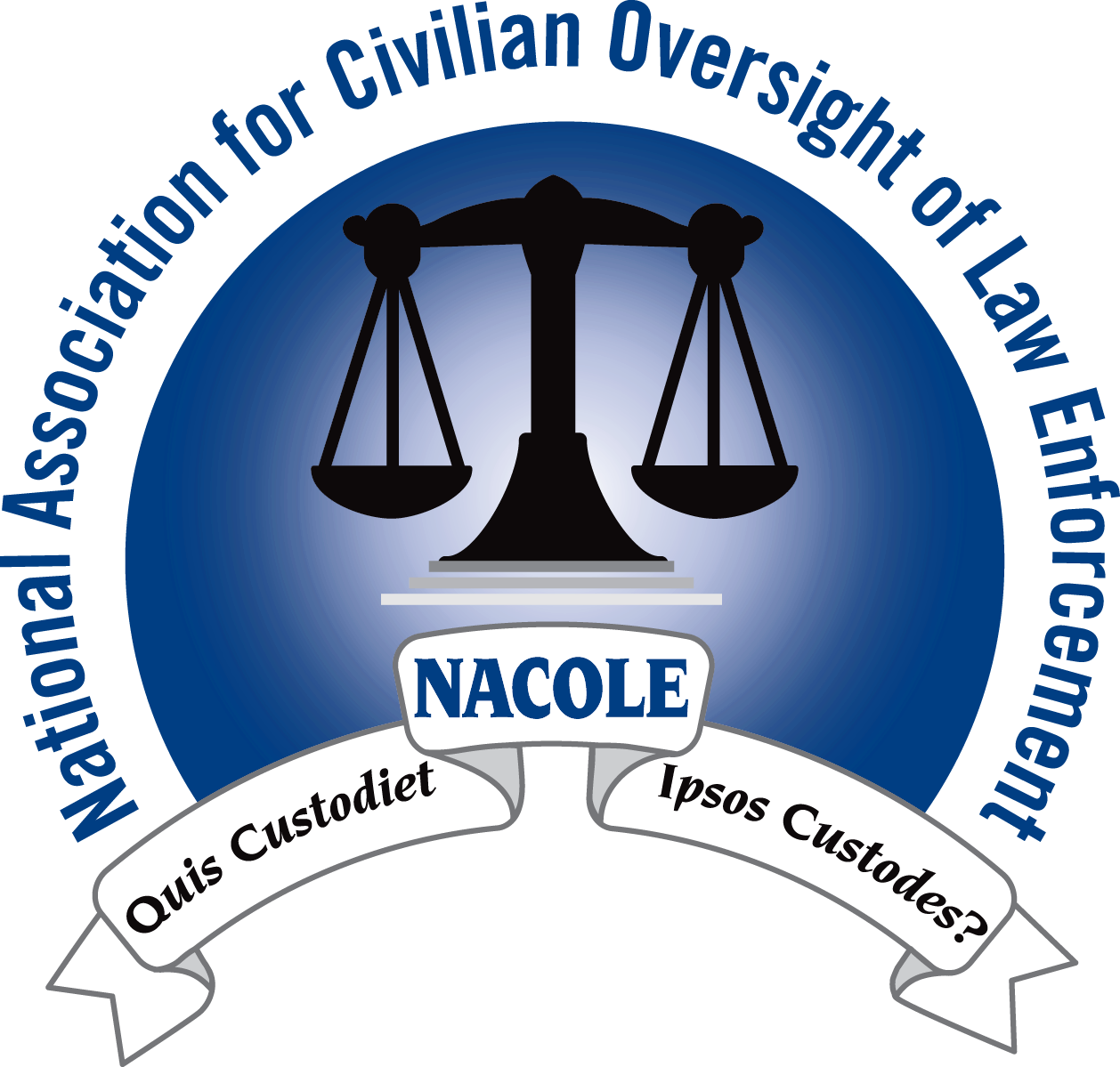



Nacole Code Of Ethics National Association For Civilian Oversight Of Law Enforcement
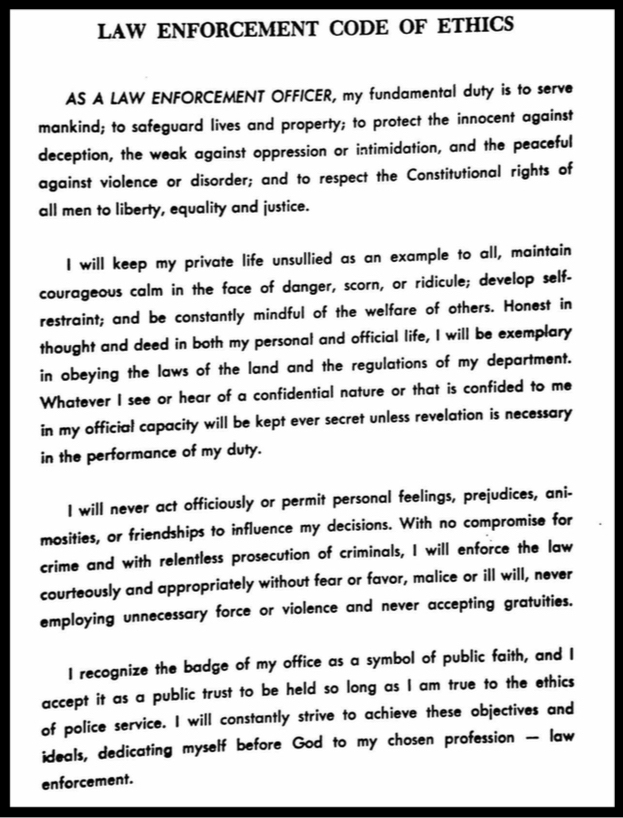



Detroit Under Fire Police Violence Crime Politics And The Struggle For Racial Justice In The Civil Rights Era Law Enforcement Code Of Ethics Omeka Beta Service
College Research inbox (research@collegepnnpoliceuk) The views in this report are those of the authors, not necessarily those of the College of Policing (nor do they reflect College of Policing policy) 1 Contents Page The impact of codes of ethics 2 References 6 Appendix A Review methods 7 Appendix B Studies included in the review 8 2 The impact of codes of ethicsTo learn more, consult the Code of ethics of Québec police officers What can I do if a police officer violated the code of ethics?The way we work is guided by the College of Policing's Code of Ethics All our officers and staff are aware that the highest ethical standards are expected of them and that anyone who falls short will be dealt with robustly If things go wrong we will acknowledge our mistakes, share the learning and aim to find a positive way forward We are more concerned with identifying the best way forward




Conduct Unbecoming A Call For A Model Code Of Ethics For Law Enforcement



Appendix The British Columbia Police Code Of Ethics Ethics In Law Enforcement
111 This Code of Ethics (herein after referred to as the "Code") is applicable to police officers forming part of the Malta Police Force (hereinafter referred to as the "Police" or the "Force") and stands to regulate the following 1111 the relationship between the police, the community and individual citizens;The Natonal Code of Ethics describes, through the nine Policing Principles it contains, what the public should expect from all of us as we deliver our day to day businessCode of Ethics for policing in Scotland This Code of Ethics for Policing in Scotland sets out the standards expected of all of those who contribute to policing in Scotland This is neither a discipline code nor an unattainable aspirational tool Rather this Code is a practical set of measures, which reflect the values of the Police Service of Scotland We are all responsible for delivering a




Military Police Code Of Ethics Police Code Military Police Youngstown State University




Code Of Conduct Vic Police Police Prep Com Au Police Officer Care
The College of Policing's Code of Ethics lays out standards of behaviour every police employee should aspire to It's there to help staff do the right thing and have confidence to challenge colleagues if necessary, irrespective of rank, role or position Section 10 of the Police Code of Ethics states that unethical or unprofessional behaviour on the part of a policing colleague should never be ignored 'irrespective of the person's rank, grade or role' (College of Policing, 14 15)People who think a police officer has treated them in a way that goes against the code of ethics can file a complaint with the office of the Police Ethics Commissioner or at any police station The complaint must be in writing The person making the



Pimasheriff Org Download File 453 313




Police Officers Oath Of Office And Code Of Ethics A Question Of Knowledge Pdf Free Download
The code of ethics is a code of practice for the principles and standards of professional behaviour for the policing profession of England and Wales The standards of professional behaviour that are expected of every member of our workforce are contained in the Code of EthicsCode of Ethics brings the police service in line with other professions It also • combines policing principles and standards of behaviour in a single document, thereby replacing a plethora of existing material • is inclusive, applying to everyone in policing, whereas previous documents tended to relate to police officers only (eg, the Oath of Attestation and the conduct and performanceThe Code of Ethics is a first for everyone who works in policing in England and Wales It sets out the principles and standards of behaviour we expect to see from police professionals It applies to every individual who works in policing, whether a warranted ocer, member of police staff, volunteer or someone contracted to work in a police force




Code Of Ethics
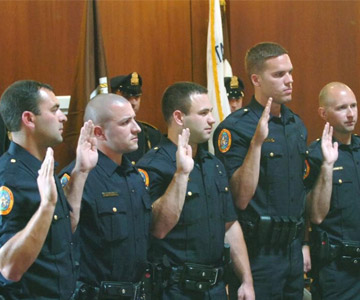



City Of Bethlehem
Police are to be forced to obey a new code of ethics following a string of public rows including the "Plebgate" row The code will be similar to the Hippocratic Oath taken by doctors and isCode of Ethics We support the Code of Ethics which are the principles and standards of professional behaviour for policing in England and Wales TheseIntegrity and transparency Ensuring that the people who work for the police uphold the values of the service, strive to do the right thing in all situations and have the public's confidence




San Mateo Police Department Law Enforcement Officer Code Of Ethics Video Facebook




Promoting The Law Enforcement Code Of Ethics Through Leadership Norwich University Online
The Code of Ethics is a national code of practice, which defines core policing values and the standards of behaviour for everyone who works in policing Tweet We aim to provide the very best quality of service to the public whilst delivering our strategy, which includes targeting offenders, preventing, reducing and detecting crime, serving our victims and providing community basedCode of ethics The Code of Ethics applies to all officers and staff in England and Wales, in every force, in every role, at every level The Code lays out the principles and standards of behaviour that everyone who works in policing should aspire to It is intended to be used on a daytoday basis to guide behaviour and decisionmaking and has been written "by" policing "for" policing> Main > Police Force > Code of Ethics Code of Ethics Link to Code of Ethics CODE OF ETHICS DIGITALPDF CONTACT INFORMATION Contact Name POLICE HEADQUARTERS, St Calcedonius Square Floriana FRN 1530




Badge Frame Custom Career Shadowboxes For Police Military Etc Mission Vision Values Recognition Plaques Value Statements
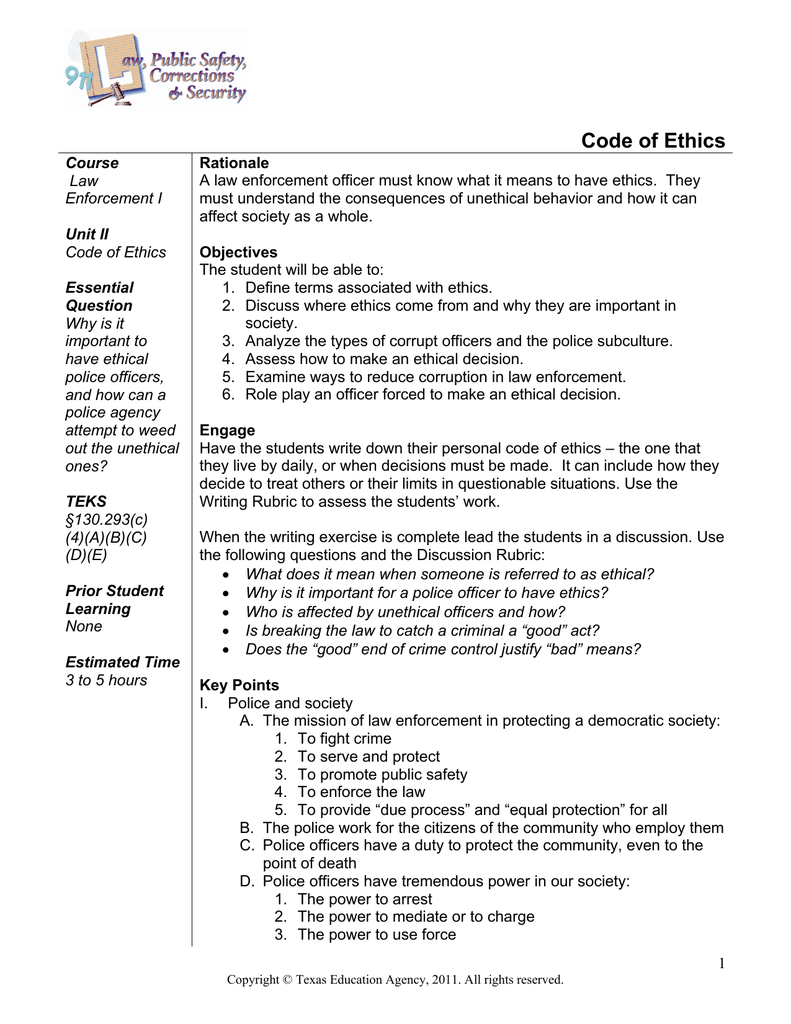



Code Of Ethics
Codes of ethics are usually used by law enforcement institutions to set principles, values and standards of ethical and professional behaviours, and to outline requirements, limitations or prohibition on officer conduct and activities within the agency (International Association of Chiefs of Police) In this sense, in addition to guiding behaviours, these codes function as a professional The aim of this code of ethics is to support each member of the policing profession to deliver the highest professional standards in their service to the public EthicalOf all men to liberty, equality and justice (The Police Code of Ethics, 1992 IACP version) In England, Sir Robert Peel in 19 created what is often referred to as the first professional police force This police force obtained its authority from the commonlaw legal obligation and was viewed as being part of the community Police authority was to be as unobtrusive as possible, so




Fillable Online Pwpd Subject Law Enforcement Code Of Ethics Canons Of Police Pwpd Fax Email Print Pdffiller



Portal Ct Gov Media Post Pdf Documents Lawenforcementcodeofethicspdf Pdf
The Code of Ethics is a irst for everyone who works in policing in England and Wales It sets out the principles and standards of behaviour we expect to see from police professionals It applies to every individual who works in policing, whether a warranted oicer, member of police staf, volunteer or someone contracted to work in a police force As a profession we should invest in all our The Code of Ethics has been produced by the College of Policing, it is the official code of practice for the police service It applies to everyone in policing this includes officers, police staff, contractors and volunteers The Code of Ethics makes clear the key principles that guide the difficult decisions that we have to make every day of the week It sets out theThe Code of Ethics was produced by the College of Policing in 14 in its role as the professional body for policing It sets and defines the exemplary standards of




Police Ethics Lieutenant John Manago Loveland Police Department Ppt Download




2 Ethics Police Leadership
There are two of the most ignored areas of police work are 1 code of ethics 2 oath of office These two documents are the most important issues of truth and honesty that a police department has with the community which the this department serves Most police agencies have neglected these issues and do not fully understand the impact they have on the community they serveThe Code of Ethics gives examples to help police officers interpret the standards expected in a consistent way They are not intended to be an exclusive or exhaustive list 19 Where the misconduct procedure is being applied, it is important to identify the actual behaviour that is alleged to have fallen below the standard expected of a police officer, with clear particulars describing A new Code setting out policing principles and standards of professional behaviour for members of the policing profession raises questions around how incidents of minor misconduct will be dealt with On 15 July 14 the College of Policing issued a Code of Ethics ('the Code') under section 39A of the Police Act 1996



Code Of Ethics Texas Police Chiefs Association




Police Face New Ethical Dilemma In Increasingly Digital World Law The Guardian
For police officers, ethics means treating individuals equally with dignity and respect and letting the judiciary decide who is innocent or guilty Ethics in law enforcement means pursuing the application of the law regardless of who is involved In October of 1957 the International Association of Chiefs of Police publishes a law officer code of ethics that begins "As a law enforcementPolice Code of Ethics Policing Principles Every person working for the police service must work honestly and ethically The public expect the police to do the right thing in the right way Basing decisions and actions on a set of policing principles will help to achieve this Accountability;As a result, the Code of Ethics allows to transform what is otherwise perceived as an intuitively understandable supposition of improper conduct into legally sound allegation against a police officer by a member of public who believes that his or her rights were violated ← Complaints (against police) system explained AAAPPP is launched →
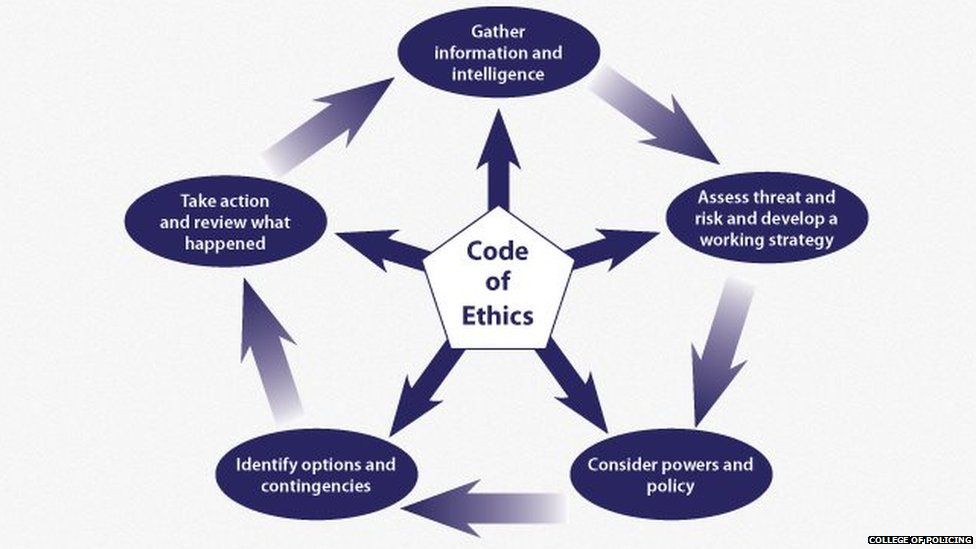



When Can The Police Use A Taser c News




Police Ethics Medicine Health Science Books Amazon Com




Police Ethics Free Essay Example




Oliver Scott Curry Code Of Ethics For The Policing Profession Of England And Wales Ethicalatlas T Co D2oxkbaaqc
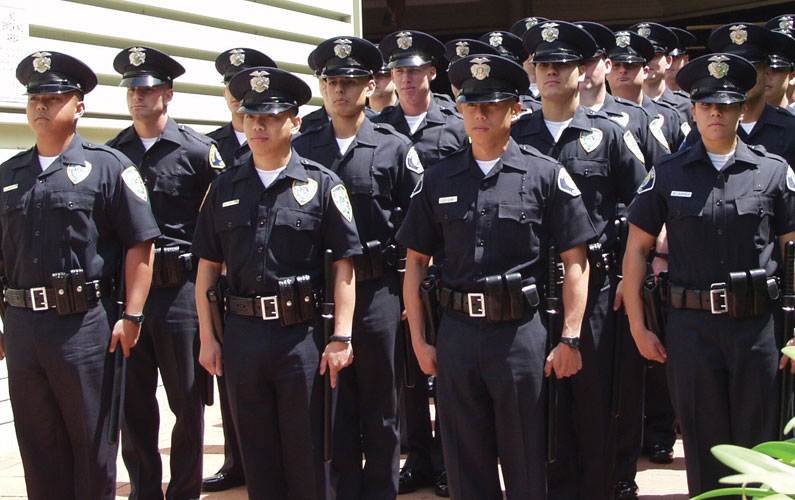



Law Enforcement Code Of Ethics




The Code Of Ethics Of The Uk Police Explained appp Association Against Abuse Of Police Powers And Privileges



3
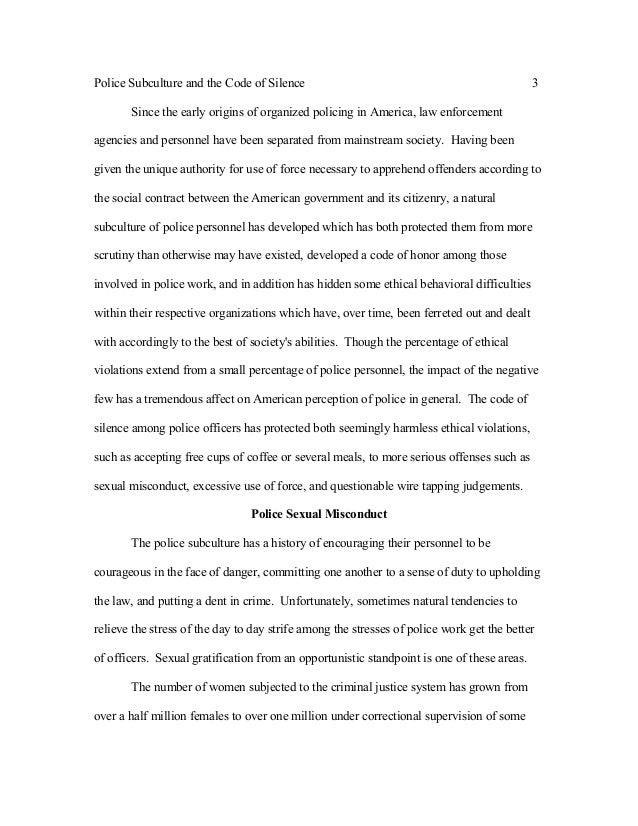



Law Enforcement Ethics Police Subculture And The Code Of Silence Ande



Code Of Ethics Nashville Nc




Solution Isa239 Code Of Ethics For Law Enforcement Officials001 Studypool




Utah County Chiefs Of Police Join In Reciting Unified Code Of Ethics Local News Heraldextra Com



Technology And Police Operations National Police Foundation



Klecs Ky Gov S Form L 1 Code Of Ethics Pdf
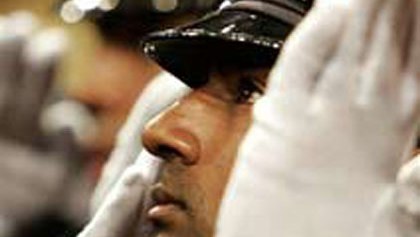



Codes Of Ethics And Officer Discipline




Amazon Com Better Law Enforcement Code Of Ethics Aged Parchment Personalized Posters Prints




Petition Barack Obama Law Enforcement Must Adhere To And Uphold The Law Enforcement Code Of Ethics Change Org



Ethics Mission Statements Core Values Vision Statements From Badge Frame




Police Discipline The New Code Of Ethics And The Police Conduct Regulations 12 Corrupt Police




Competency And Values College Of Policing




Pdf Police Ethics Revisited



Www Jibc Ca Sites Default Files 04 Police Code Of Ethics Pdf
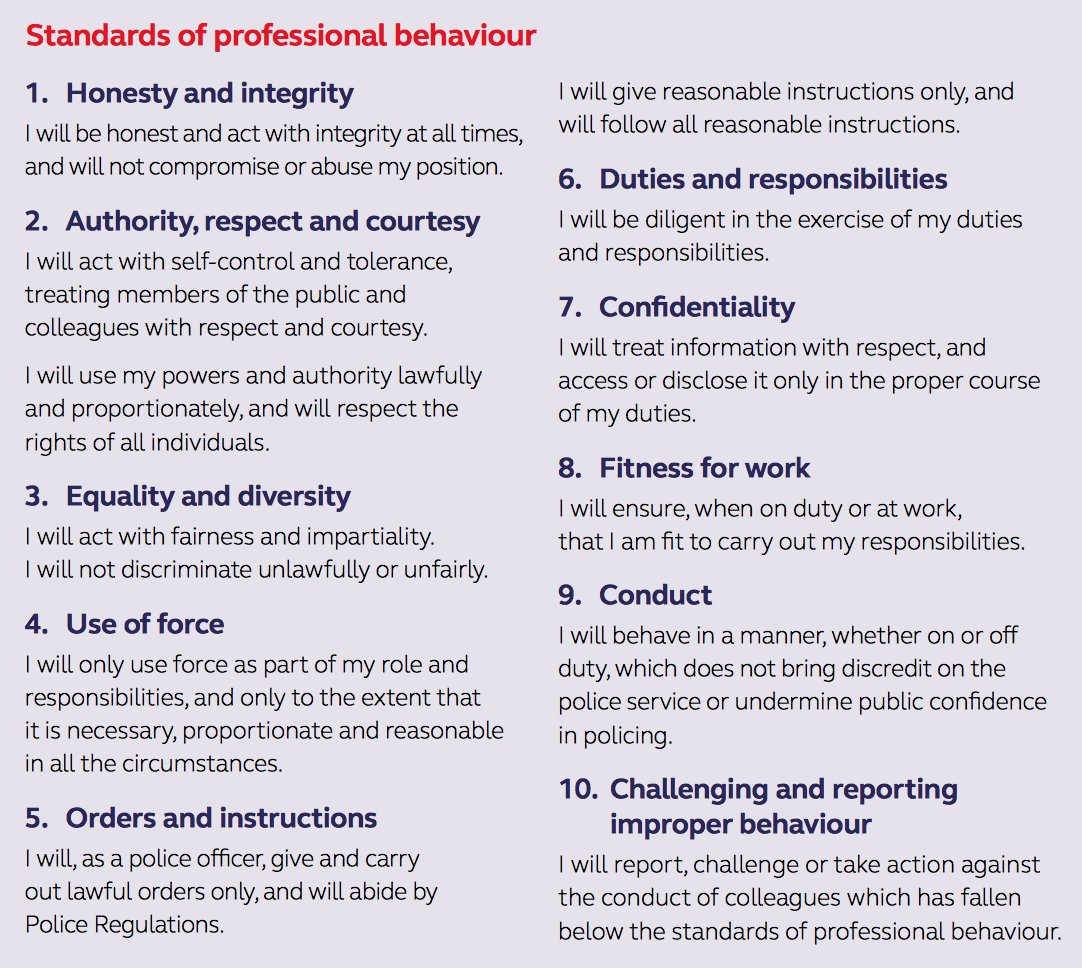



Oliver Scott Curry Code Of Ethics For The Policing Profession Of England And Wales Ethicalatlas T Co D2oxkbaaqc




Brawley Police Code Of Ethics And Mission Vision Presentation From Badge Frame Mission Vision Values Value Statements Mission Vision
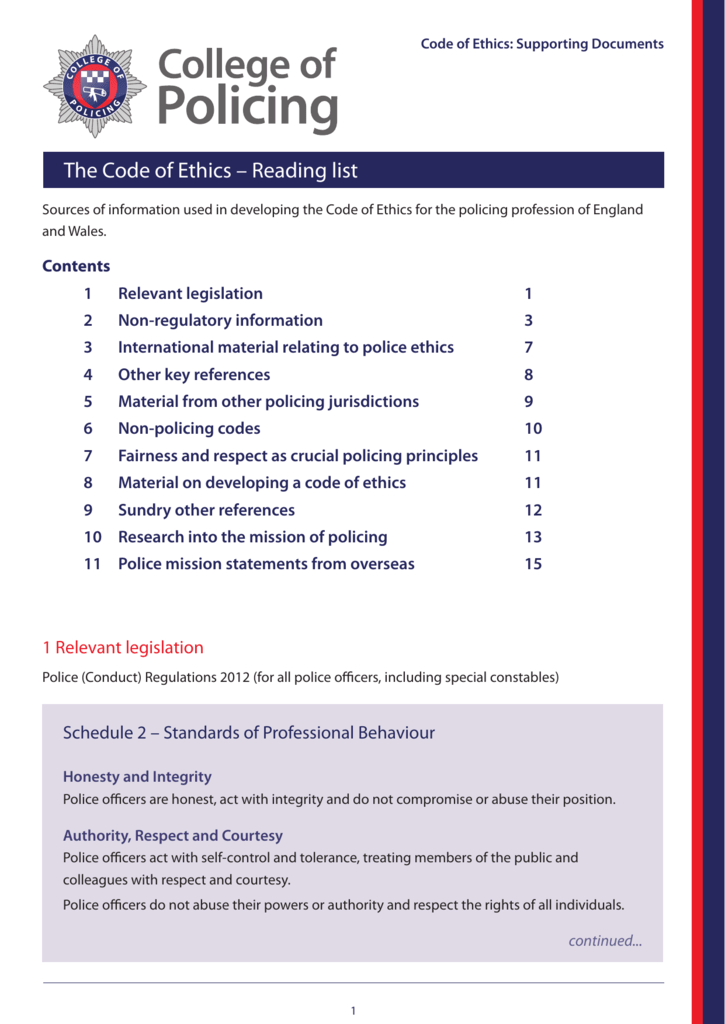



The Code Of Ethics Reading List



Police Fortworthtexas Gov Ui Resource Aspx P 1b54 Fe67 438f Bac8 06a5b66a512b




The Importance Of Ethics In Police Asta Edu Au




Policing And Ethics Panels Are They Really Working Police Hour
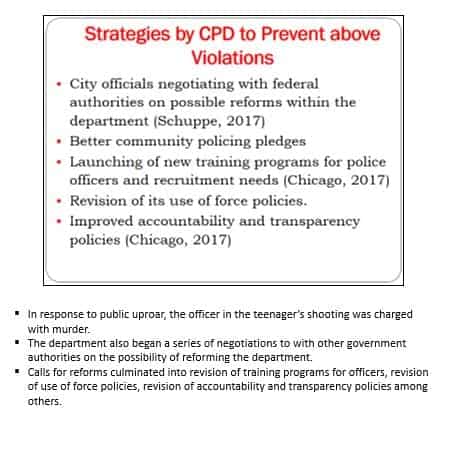



Describe The Ethical Violation And Why It Is An Ethical Violation Based On The Law Enforcement Code Of Ethics




Macron Denounces Police Violence Calls For Improved Code Of Ethics



Www Fayetteville Ar Gov Documentcenter View 111 Law Enforcement Agency Role




Law Enforcement Code Of Ethics City Of Holly Hill Florida



Thurmont Com Documentcenter View 614 Code Of Ethics




Code Of Ethics Youtube




Top Pdf Ethical And Professional Conduct Of The Romanian Police Officer A Reflection Upon The Romanian Police Officer S Code Of Ethics And Deontology 1library



Police Services Code Of Ethics



Www Northants Police Uk Syssiteassets Media Downloads Northamptonshire About Us Code Of Ethics Booklet Pdf



Code Of Ethics City Of Torrance



1



Q Tbn And9gcteck3nxaghic Ssmkgimcgvobs5tu0esgknfusikjunltzzv8n Usqp Cau
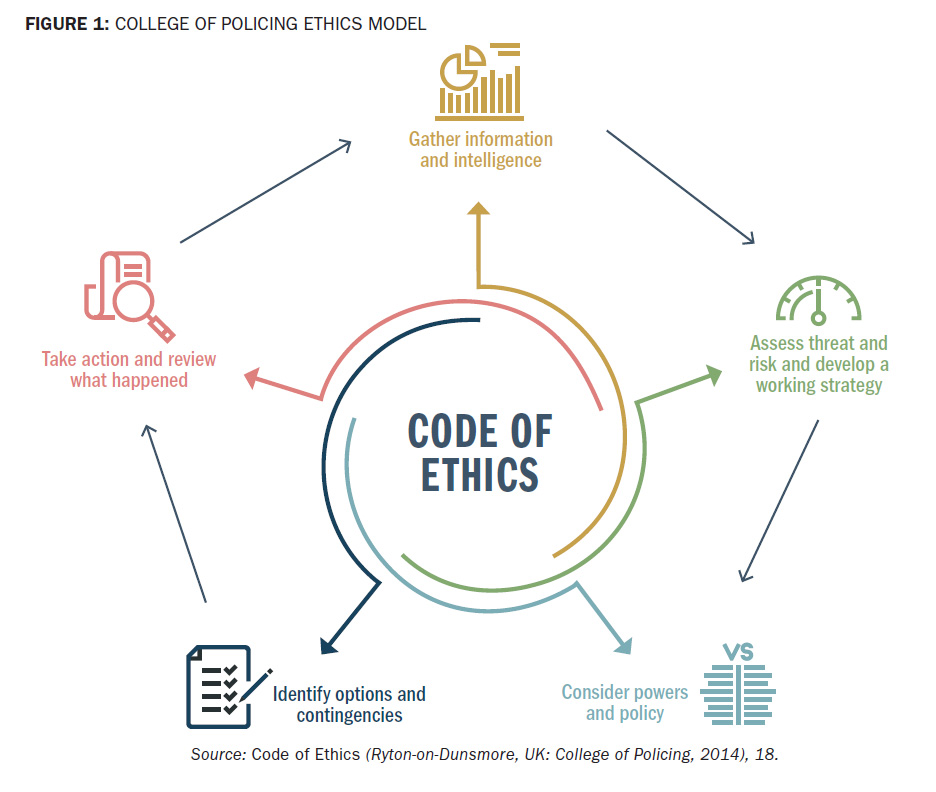



Figure1college Of Policing Ethics Model Police Chief Magazine




Why Did The Boys In Blue Turn Into The Boys In Black Part 3



Http Www Phillypolice Com Assets Directives D1 0 Missionandvaluesstatements Pdf
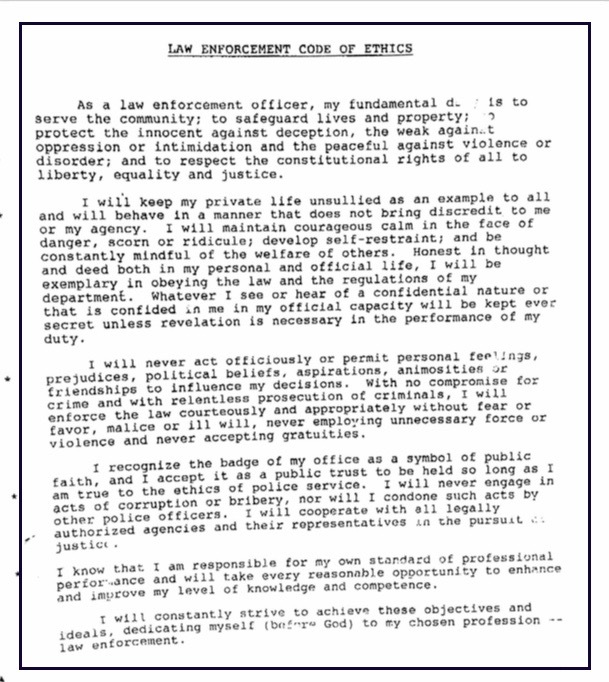



Crackdown Policing Detroit Through The War On Drugs Crime And Youth Law Enforcement Code Of Ethics Omeka Beta Service



Ethics Mission Statements Core Values Vision Statements From Badge Frame



Www Fontana Org Documentcenter View



Whitewater Wi Gov Documentcenter View 396 Police And Fire Commission Code Of Ethics Pdf




Police Code Of Ethics For Members Of The Public Youtube




Police Ethics Lieutenant John Manago Loveland Police Department Ppt Download



1



Www Durham Police Uk About Us Our Commitment Commitment Documents Code Of Ethics Durham Pdf




Doc Code Of Silence Ethics Essay Alma Catalon Academia Edu
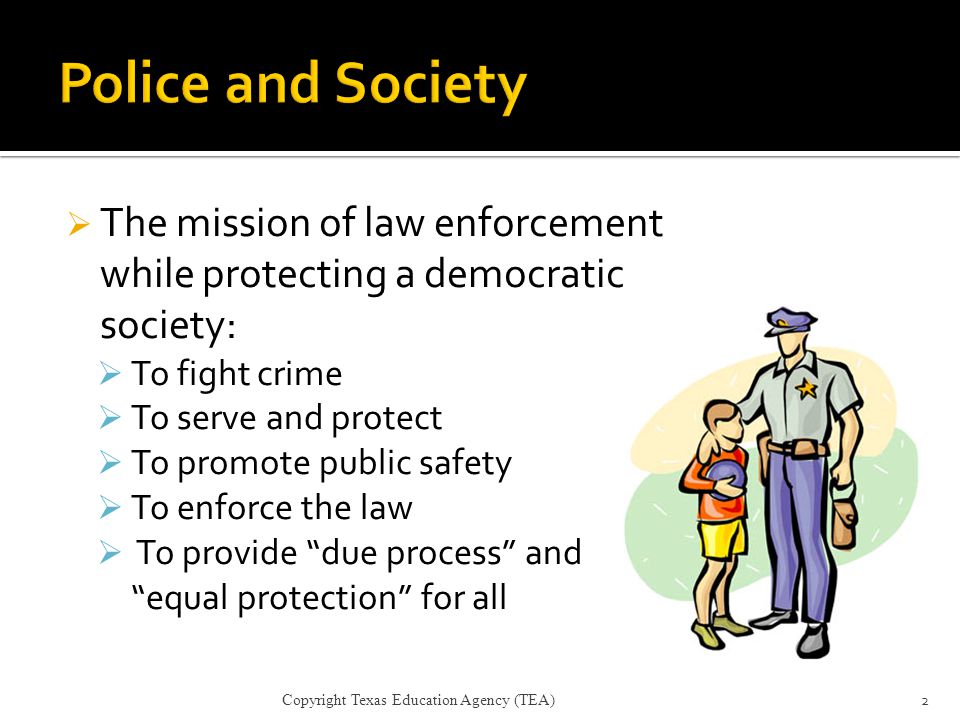



Code Of Ethics Law Enforcement I Ppt Download




Slides Show




Calibre Press Developing Smarter Safer More Successful Law Enforcement Officers
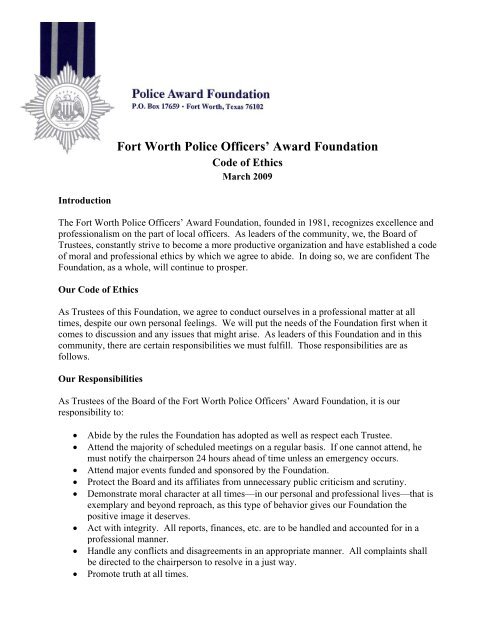



Fwpoaf Code Of Ethics Fw Police Officers Award Foundation




Nick Herbert Pro Hunt Chair Of College Of Policing Action Against Foxhunting




Code Of Ethics Mobile Police Department




Online Essay Help Amazonia Fiocruz Br




Code Of Ethics Dorset Police




Code Of Ethics Uk



Www Nipolicingboard Org Uk Psni Code Ethics




Police Ethics Research Papers




Retired Police Corporal Chris Grollnek And The Police Code Of Ethicsactive Shooter Expert Keynote Speaker Network News Guest Contributing Author




The Law Enforcement Code Of Ethics Youtube




Law Enforcement Code Of Ethics
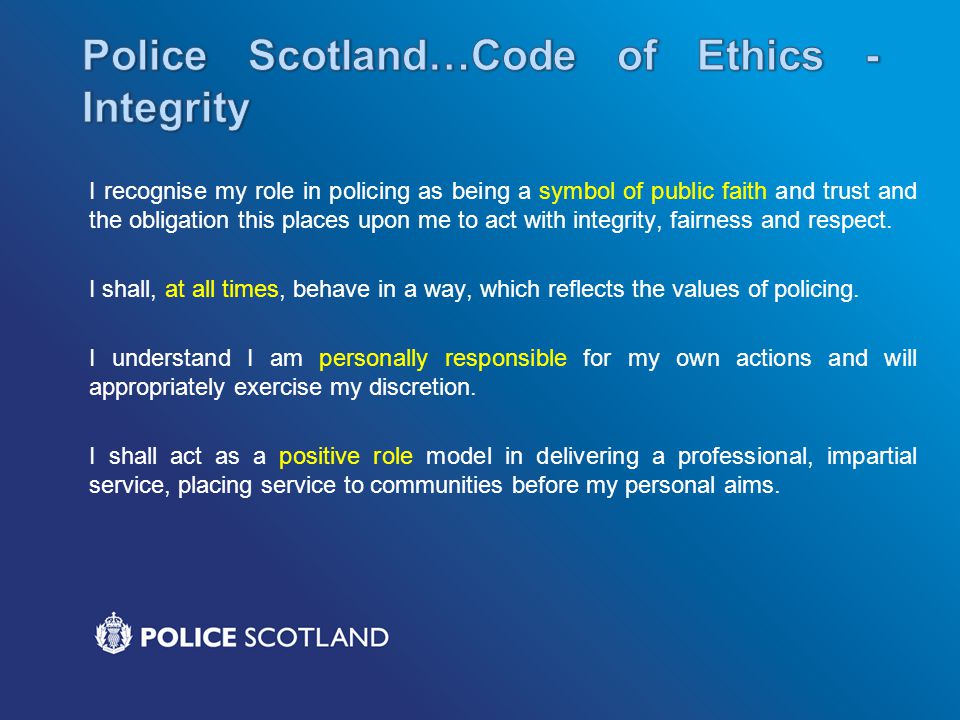



Values Based Policing In Scotland Ethical Policing From Poster To Pavement Police Scotland Is A Values Based Organisation How We Serve Our Communities Ppt Video Online Download
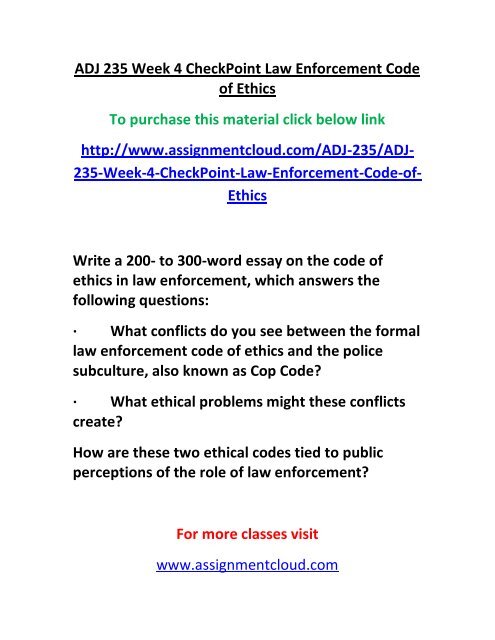



Adj 235 Week 4 Checkpoint Law Enforcement Code Of Ethics



Www Powerdms Com Public c Documents 14




Crim 4 Midterm Police Police Officer



Www2 Sjpd Org Records Pc Library Department Orders 041 dm revision c 1302 code of ethics 1 Pdf
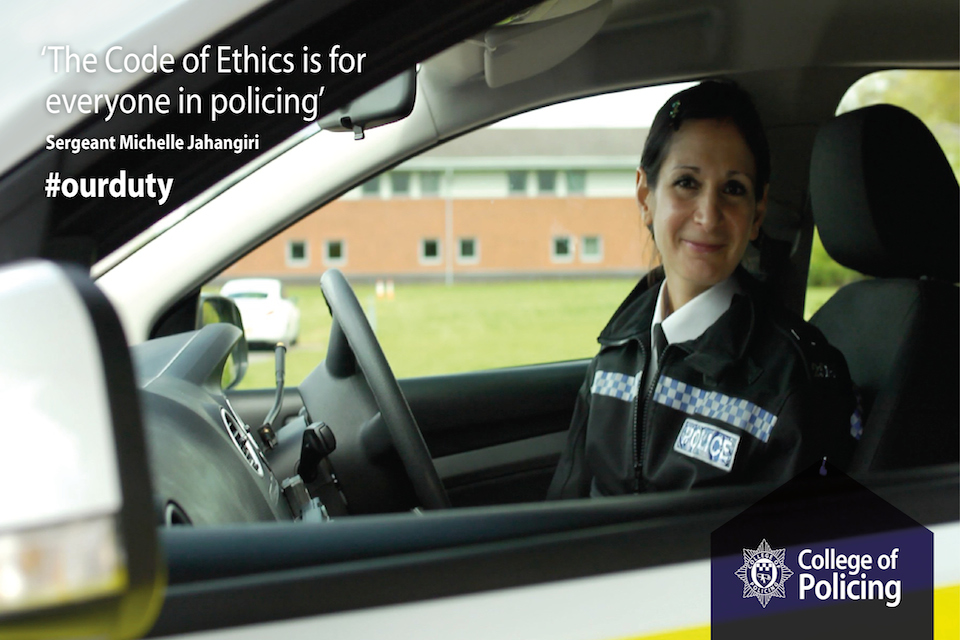



Code Of Ethics Launched Gov Uk



Police Services Code Of Ethics




Law Enforcement Code Of Ethics Police Motivation Police Code Ethics




Eastern Michigan University Police Officers Oath Of Pages 1 32 Flip Pdf Download Fliphtml5




Code Of Ethics Uk




Code Of Ethics Uk
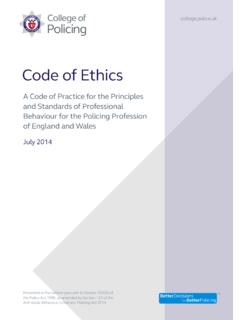



Code Of Ethics College Of Policing Code Of Ethics College Of Policing Pdf Pdf4pro




Code Of Ethics Law Enforcement I Copyright And




Law Enforcement Code Of Ethics
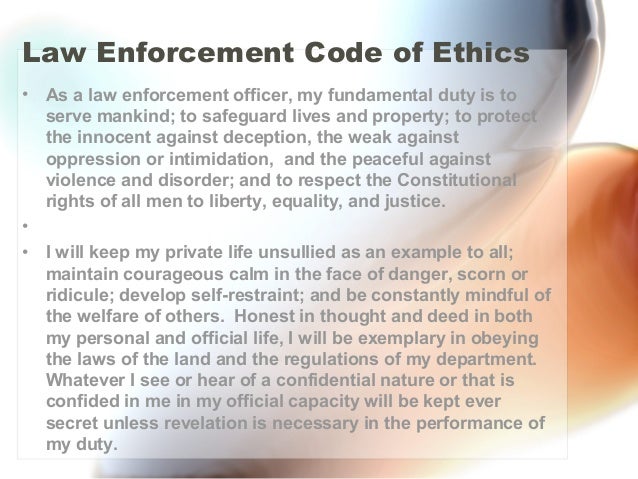



Police Ethics Short



0 件のコメント:
コメントを投稿